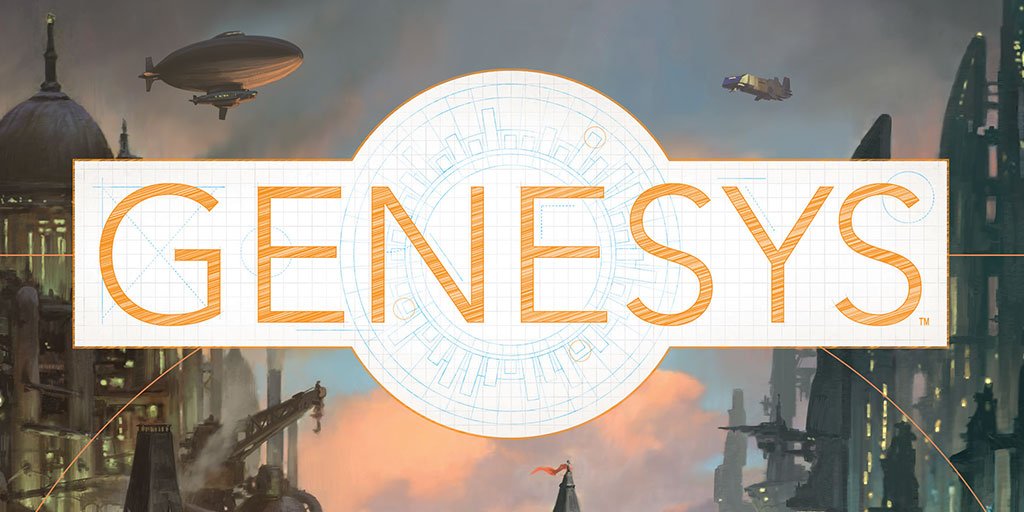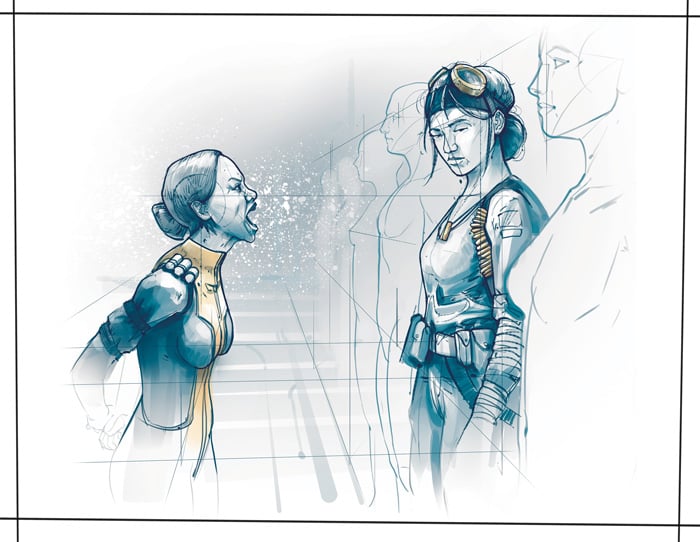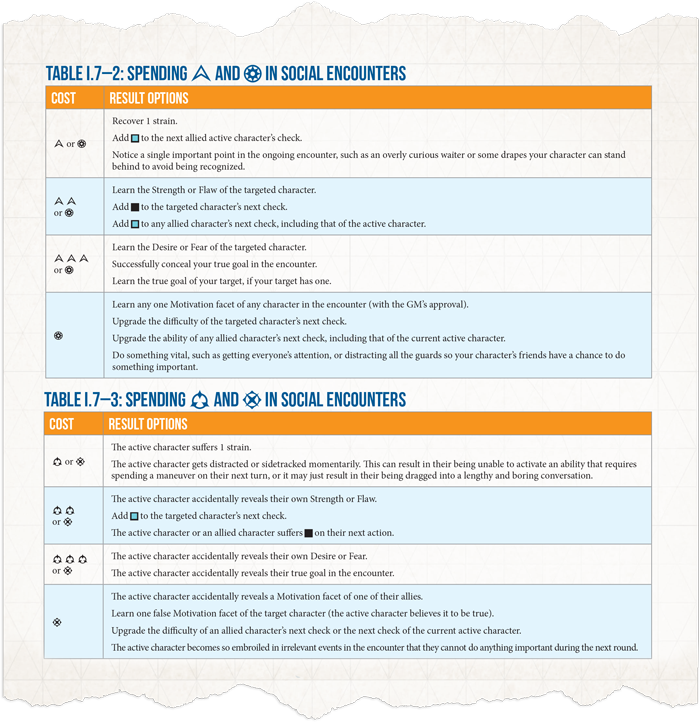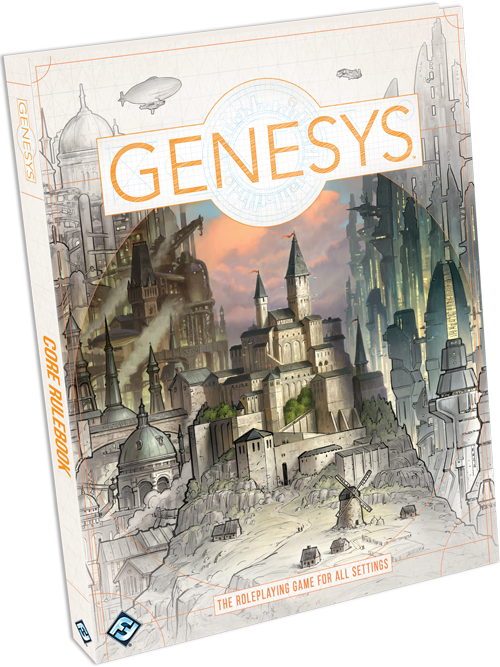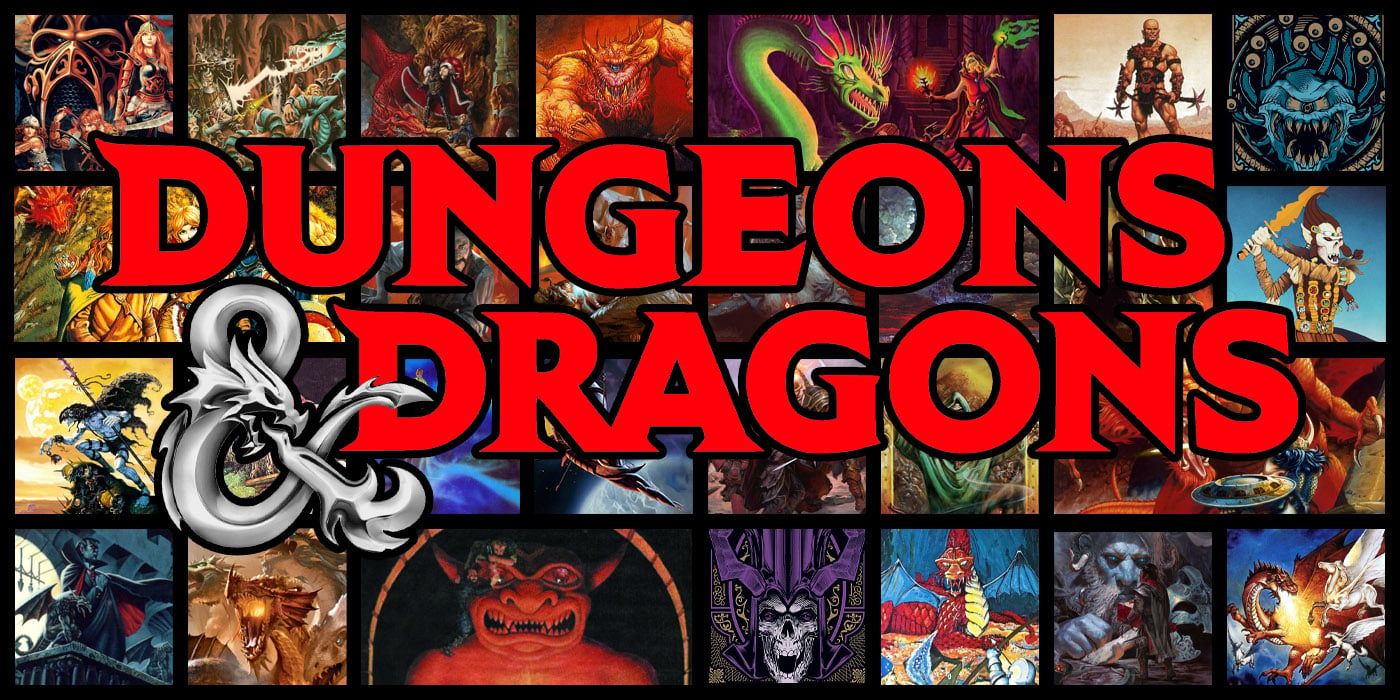FFG: Genesys RPG – Social Mechanics
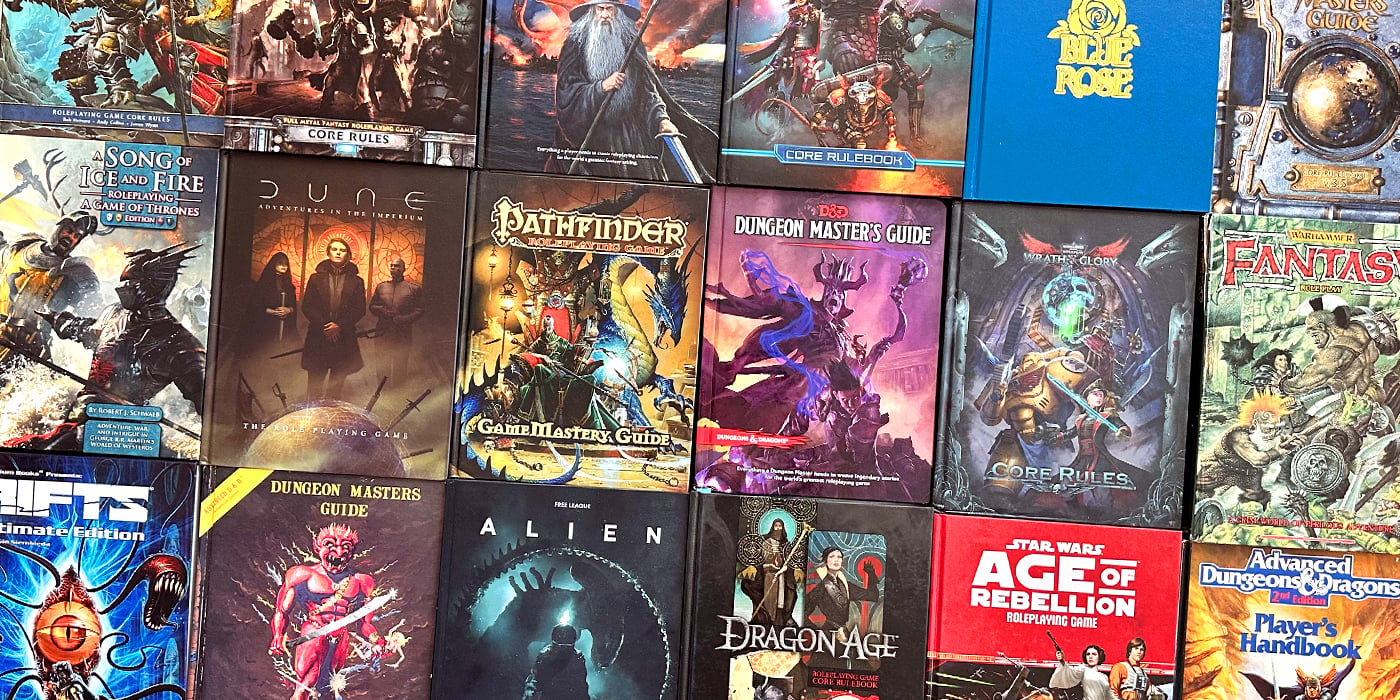
Take a look at the mechanisms of social interactions in the upcoming Genesis RPG.
Social interactions are an important part of any role playing game, and yet they’re one of the hardest things to nail down mechanically. Too much and it becomes a chore with no room for actually playing a role. Too little and no one does it because it’s confusing and abstract and can’t we just roll and see if we succeed?
Here’s how FFG’s upcoming universal rpg, Genesys finds their balance in social encounters.
via FFG
So to begin with, there’s two basic “modes” to Genesys. There’s structured gameplay, which is all about handling interactions when you’re trying to figure out what your character can do in a short time span. Sure, combat’s an easy one, but also if you’re having to hack a mainframe, these rules could come in handy.
For everything else, there’s narrative gameplay. Narrative play is FFG’so term for noncombat, non-time sensitive play. And don’t worry, even the narrative game play gives you plenty of opportunities to make skill checks (depending on what you’re doing). Both sets of rules have a few things in common, but most importantly for these purposes, they both revolve around encounters.
Social encounters are a little more abstract than combat encounters by their nature. Winning is dependent on what you’re doing–it can be hard to determine a victory condition when you’re there to maneuver subtly, like a spider positioning a web. But in Genesys, they have a few tools built in to help guide players to interesting/exciting social encounters.
First up is Motivations. In the last preview of Genesys, we had a look at the four motivations that go into creating a character–flaws, fears, strengths and desires. These come into sharp focus in the social encounters. If you know an enemy’s motivations, you can set yourself up with Advantage when using one of those against him. For instance, if you know that stubborn count is driven by a desire for greed, playing up how he stands to gain financially from giving your friends the aid you need might really satisfy that desire.
This also plays into how you get to use Advantage and Threat and Triumph and Despair in your social encounters.
If any of this looks familiar, then I hope you’ve been enjoying your Star Wars rpg. But you can see how these die rolls help drive the narrative. The results drive interaction, whether by giving you flaws to exploit or desires to give your character and how they talk to people.
And that’s why these rules succeed in striking a balance between anarchy and order. They help further the role the one making the roll is trying to play. And you can’t ask for more from your mechanics.
Though we can unpack some of what we’ve learned here to get a sense of what the overall rules will be like. For instance, Genesys uses the same dice out of Age of Rebellion or Force and Destiny. It probably has a lot of similar underlying structures to it–we know it uses the damage vs. strain dynamic as well. And that the game is overall broad enough to fit just about any setting.
Genesys RPG – $39.99
Face down a dragon as a brave knight, hack into a corporate security system as an elite runner, set sail in your airship. Unlimited adventure awaits you in Genesys, a new roleplaying system designed for a variety of settings and limited only by your imagination.
The Genesys experience begins with the Genesys Core Rulebook, which features an explanation of the innovative narrative dice system and core mechanics of the game, an overview of five different settings in which to place campaigns, and advice for Game Masters to craft a myriad of adventures with unparalleled freedom.
Advertisement
Genesys is due out later this year, and available for pre-order now.

